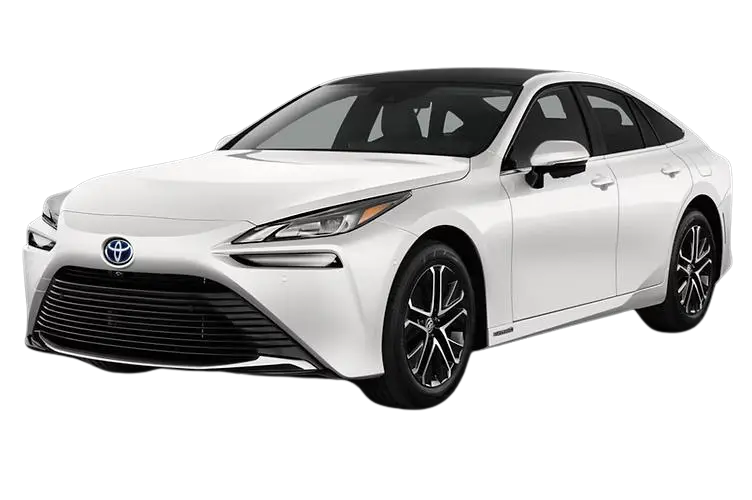In 2014, Toyota introduced their first hydrogen fuel cell vehicle, the Mirai. It was originally promoted as a sustainable, eco-friendly alternative to electric and gas-powered cars designed to be more efficient and promote cleaner energy. Toyota has long had a reputation as being one of the most dependable and quality car brands in the world. Consumers had plenty to look forward to with the innovation and efficiency that the Mirai promised to offer.
This was not the reality for many Mirai owners. Drivers quickly began having concerns with the car’s usability, reliability, and safety. Mirai drivers were noticing limited access to hydrogen fueling stations, malfunctioning pumps that latch onto the car, reduced mileage range, and repeated drivetrain and electronic issues.
Our firm initially filed a class action lawsuit on behalf of Toyota Mirai owners to hold Toyota accountable for these recurring problems; though after hearing several stories and complaints from Mirai drivers and realizing how they were individually affected, we decided that each case warranted unique, separate representation. At the Ingber Law Group, we are taking an individualized approach to help Mirai owners secure fair compensation for their negative experiences. It’s our goal to provide determined legal representation for those who have been let down by Toyota and their empty promises.
What Are Some of the Biggest Problems With the Toyota Mirai?
The Toyota Mirai entered the market with a mission to promote sustainable, emissions-free driving that enhanced the convenience and practicality of a gas-powered or electric vehicle. However, many Mirai owners have experienced persistent issues that affect their driving experience and their day-to-day lives.
Hydrogen Refueling Accessibility Issues
Many Mirai owners were excited about the prospect of owning a hydrogen fuel cell vehicle. However, the lack of available fueling options has been a major hindrance. There are thousands of gas stations and EV charging stations across the country, but hydrogen fuel stations remain scarce and are mostly located in specific parts of California. This often makes it challenging for Mirai owners to reliably commute to work, travel, or drive any distance that requires a higher amount of fuel.
According to the Department of Energy,
there are 59 hydrogen charging stations in the United States, primarily in the state of California. However, only 43 of them are online and currently operational. Even in California, where hydrogen stations are most prominent, drivers may still have to travel a great distance to fuel their vehicles. It may even require advanced planning if there isn’t a station nearby.
Stations that do exist often experience a number of maintenance issues, technical issues, and hydrogen shortages. There have been several reported instances of Mirai owners driving all the way to a hydrogen fueling station only to find that they are either closed, out of hydrogen, or are undergoing maintenance. Hydrogen refueling stations often struggle to secure the financial and logistical support needed to maintain them consistently. Stations are sometimes left offline for an indefinite period of time, leaving Mirai owners having to search for alternatives and travel to another location.
The lack of accessible fueling stations is only exacerbated by the Mirai’s limited range. The Mirai has a much shorter mileage range than originally anticipated, causing drivers to have to refuel more often. With such limited hydrogen infrastructure, having to frequently refuel becomes a serious challenge for drivers. The combination of a reduced range and a lack of fueling stations has made many Mirai owners reevaluate their stance on hydrogen-powered vehicles.
Jason Ingber and the Ingber Law Group understand the impact that refueling issues like these have had on owners. Mirai drivers who purchased the vehicle were sold on Toyota’s promise for simple, accessible, and convenient refueling capabilities, though have been disappointed and inconvenienced by the day-to-day usability of the car. We are prepared to represent Mirai owners who have been misled by Toyota’s promises and help you pursue an individual claim that allows you to recover compensation.
Consumers may be eligible for compensation for the inconvenience, added costs, and lack of “driveability.” The lack of fueling stations not only makes Mirai owners feel they made a poor investment, but it also diminishes the resale value of the car tremendously. Ingber Law Group is proud to help Mirai owners explore their legal options and help them secure compensation for the burdens that they have experienced.
Fuel Pump Malfunctions
Even when Toyota Mirai drivers are able to find an operational fueling station, they still may not be in the clear. Oftentimes during fueling, pumps freeze or become stuck onto the Mirai’s fuel intake. They latch onto the vehicles and may even require assistance to be removed. Hydrogen fueling equipment differs from that on traditional vehicles, often leading to problems with the pump functionality. This has become an unexpected and particularly frustrating issue for Mirai owners. It not only disrupts their driving experience, but it could imply safety concerns and financial burdens.
Mirai owners often report that once they begin refueling, the pump will freeze, usually due to a malfunction in the cooling mechanism that controls the high pressure within the nozzle. Hydrogen must be stored and dispensed at extremely high pressures so malfunctions often result in the pump becoming “frozen” in place. Once the pump has become latched onto the Mirai’s fuel intake nozzle, it is basically impossible to move. Drivers are often unable to detach it from their car and need to hire a professional to come help. Drivers who are left stranded at a pump with a frozen pump will either need to contact the station staff, hydrogen specialists, or other emergency services to intervene. This can leave Mirai owners waiting for hours at a time while their vehicle is rendered inoperable. In some instances, entire stations have been temporarily shut down until a pump technician could arrive and safely detach the pump.
Not only can this be a massive inconvenience for drivers with responsibilities to tend to, but it can be a serious safety concern. Any malfunction during the refueling process can cause significant damage to your car’s fuel system. Oftentimes, drivers will try to detach the pump themselves and end up damaging vehicle components. Some Mirai owners report damage to the hydrogen intake nozzle, requiring costly, out-of-pocket repairs just from trying to fill your tank. For a vehicle that was promoted as a convenient, reliable, and efficient method of transportation, the Mirai has put many owners in emergency situations, stranding them at fueling stations to wait for professional help.
The financial burden of one simple pump malfunction can be substantial. Toyota has offered financial support for owners who have had to pay for repairs on damaged fueling components, though not every Mirai owner who has been affected has received fair coverage. Many owners are left with out-of-pocket expenses for their repairs. Mirai drivers often feel that they have had to unfairly bear the cost of repairs for these issues, despite Toyota promising a practical and dependable vehicle.
These are not isolated incidents, either. Drivers have had to repeatedly face these situations and are often left questioning the car’s safety and reliability. The unpredictability of a routine refuel can make drivers anxious and wonder whether a pump will malfunction and leave them stranded or facing costly repairs.
The Ingber Law Group recognizes that this is not an acceptable issue for drivers to have to endure. Our firm is dedicated to helping Mirai owners recover compensation for the time, inconvenience, and financial costs resulting from a malfunctioning hydrogen pump. We will help file an individualized claim that aims to hold Toyota liable for the continued problems with hydrogen fuel pumps. Toyota’s promise of a practical vehicle that will seamlessly integrate itself into your lifestyle with a quick and easy refueling process has not been met, and Mirai owners are paying the consequences.
The Ingber Law Group will help ensure that Toyota takes responsibility for these issues and that Mirai drivers are appropriately compensated for their burdens. If you are a Toyota Mirai driver who has been affected by a pump malfunction at a hydrogen fueling station, do not hesitate to reach out to us today. Find out how we can provide you with expert representation and help you seek justice.
Mileage Range Discrepancies
Toyota has also fallen short on their promise of an impressive and efficient driving range of up to 300 miles per tank of hydrogen. When the Mirai was first introduced, this was one of the most appealing selling points, especially at a time when consumers were questioning the range capabilities of electric vehicles. Toyota reassured its consumers that the Mirai would be a practical and fuel-efficient vehicle that they could rely on for long-distance drives. However, Toyota has failed to live up to these expectations with the Mirai, and owners are noticing the Mirai’s range is actually much lower.
Drivers report that their Mirai will get between 230 and 270 miles, rather than the 300 miles that were promised on a full tank. This inconvenience has been a growing cause for concern for drivers, especially with the current level of uncertainty around refueling. Fewer miles means more stops to refuel, and given the limited availability of hydrogen stations, the station closures, and the pump malfunctions, drivers simply cannot afford to be stopping so frequently.
Not only does the reduced mileage affect Mirai driver’s day-to-day lives, it also greatly reduces the value of the car. While being labeled as a convenient, eco-friendly car, the limited infrastructure is a huge barrier when it comes to expanding the hydrogen vehicle market. The reduced range also forces drivers to plan their trips more carefully to avoid running out of fuel on the road. Drivers quickly noticed how these issues compound and make for a stressful and uncertain driving experience.
Some Mirai owners have noticed fluctuating ranges. There are a number of reasons why the discrepancy in the range exists. Some of the most likely contributing factors to the reduced mileage include:
- Driving Conditions: Temperature, terrain, and vehicle load all affect a car’s fuel efficiency. Drivers can expect to lose a few miles when driving with a heavily packed vehicle or when driving on adverse terrain. However, even in completely ideal conditions, Mirai owners have noticed that their cars rarely reach the promised 300-mile range.
- Hydrogen Quality: The purity levels of the hydrogen can affect the vehicle’s fuel efficiency. Lower quality hydrogen fuel may lead to incomplete reactions within the fuel cell, reducing both the power and the range of the car.
- Driving Style: Aggressively accelerating and changing speeds demands more power from the fuel cell and ultimately reduces the Mirai’s range. Maintaining a consistent and moderate speed is the best way to save gas.
- Batter and Auxiliary System Use: The Mirai uses a small batter that regulates the power demands. When drivers use air conditioning, heating, and even the infotainment systems in the cars, it can draw power from the fuel cell and decrease the range of the trip.
These issues are a pressing concern for drivers who were misled about the Mirai’s performance. Many owners are beginning to question whether hydrogen vehicles are ready for everyday use. Not only are fueling stations inaccessible and oftentimes offline, but the Mirai’s inconsistent range is also a troubling sign.
The Ingber Law Group recognizes the serious impact that this reduced mileage range has on consumers. Mirai owners who were given inaccurate information about the advertised mileage may be able to seek compensation with an individualized claim. Our firm is here to help Mirai owners who were misled by Toyota recover compensation for repairs, added costs, and lackluster driving experience. The Mirai’s mileage range is much lower than consumer expected, and we can help hold Toyota accountable for their unfulfilled promises.
Good mileage is one of the key factors that consumers look for when purchasing a new vehicle. For those who have been misled by Toyota about the mileage of the Mirai and want to hold them responsible for their inaccurate claims, look no further. Ingber Law Firm is the firm that you can trust to handle your claim.
Drivetrain and Performance Issues
Another issue that Mirai drivers are running into is the drivetrain and overall performance reliability. The drivetrain is responsible for delivering the power from the hydrogen fuel cell system to the wheels. The Mirai’s drivetrain has been a disappointment for drivers, to say the very least. Owners have noted reduced acceleration, inconsistent power delivery, and even unusual noises. Toyota promised a smooth and responsive driving experience with the Mirai, but these issues have contradicted their claim of the Mirai being a high-performing vehicle.
One of the most commonly reported issues with the Toyota Mirai is a sudden, noticeable drop in power while driving. Some drivers have experienced difficulty maintaining a consistent speed and have noticed that the acceleration can become sluggish. This can be particularly troublesome when driving an incline or attempting to merge onto the highway. Losing power or hesitating while driving causes uncertainty and is a serious safety concern. The Mirai’s inability to provide consistent power makes it an impractical choice for drivers in need of dependable transportation. It also raises questions about the reliability and durability of Toyota’s hydrogen fuel cell technology.
In addition to inconsistent power, Mirai owners have also reported unusual sounds coming from the drivetrain. They are often described as clunking, rattling, or humming noises. Nobody wants to hear a suspicious noise coming from their car. It is an unsettling feeling and often implies an issue with the vehicle’s structural integrity. Persistent noises from the drivetrain often raise concerns about long-term mechanical issues.
In more severe cases, some Mirai owners have experienced issues where the vehicle’s performance features fail altogether. Drivers often report dashboard alerts that indicate a need for immediate service. Servicing hydrogen-powered vehicles can be tricky and time-consuming. The hydrogen-powered system of the Mirai requires specialized expertise so drivers often have to wait for repairs from specific service centers who are able to handle your issues. This is just another barrier introduced by the Mirai that impacts driver’s day-to-day lives. The inconvenience of extended repair times and limited service providers can be frustrating for owners.
Many Mirai owners purchased the vehicle because of Toyota’s promise of innovative and reliable hydrogen technology. However, the continual performance and drivetrain issues have left consumers wondering if hydrogen technology is ready. The unpredictable nature of these vehicles is a highly stressful inconvenience that also puts drivers at serious risk.
Ingber Law Group is aware of the impact that drivetrain issues can have on Mirai owners. For those who bought the Mirai with the expectation of a smooth and reliable performance with advanced technology, the ongoing problems have been a headache. Our firm wants to help Mirai owners who have been affected by Toyota’s shortcomings seek fair compensation. We can help pursue an individual claim for the disruption, safety concerns, and financial costs associated with the Mirai’s underwhelming performance.
We aim to hold Toyota accountable for the Mirai’s drivetrain and performance problems. Many Mirai owners expected a much higher quality of service and performance based on the advertised standards. If you have experienced inconsistent power, unusual noises, or extended repair times, an individualized claim is an important step in holding Toyota liable for their undelivered promises.
Electrical and Dashboard Failures
The Toyota Mirai also has its fair share of electrical and dashboard malfunctions. Drivers have had their trips interrupted by erratic dashboard displays and electrical system failures. Mirai drivers have noted that the dashboard display commonly gives inaccurate information about hydrogen levels, mileage, and maintenance requests. When drivers aren’t able to trust the information on their vehicle’s dashboard, it causes confusion about when they should refuel or take care of their maintenance needs. A faulty dashboard can be a massive inconvenience. It can be concerning when a light pops up on your dashboard indicating that the car needs maintenance when it really doesn’t. However, it can be even more worrying if drivers do need maintenance, and they cannot trust their dashboard to give them an accurate assessment of their car’s performance.
In severe cases, Mirai drivers have experienced complete electrical failures. This often leaves the vehicle temporarily inoperable and can happen out of nowhere. It can even happen while the car is in motion, forcing the driver to pull over and take care of the issue immediately. This is a serious safety issue. If your car experiences a complete electrical malfunction while driving, it can pose a threat to you and all other drivers on the road. Furthermore, drivers may require assistance to resolve the issues and get their car back up and running again. An electrical failure can leave Mirai drivers stranded with little to no help. When these electrical failures occur, they often trigger multiple dashboard warnings and require special attention to resolve.
Also important to note, the Mirai’s electrical system and its dashboard function are critical pieces of the hydrogen fuel cell technology. After an electrical failure, the Mirai may experience issues with the fuel cell performance and notice a drop in efficiency. This will usually also lead to a lower-than-expected mileage range. Hydrogen fuel cell vehicles require specialized expertise and there are a limited number of service centers capable of handling these issues. Drivers will not only have to deal with the initial inconvenience of an electrical failure but will also have to wait an extended period to schedule the repairs. This only prolongs the inconvenience and may even force the driver to pay additional out-of-pocket expenses for their vehicle’s performance, like rental cars, Ubers, and other rideshare options.
These issues continually compound and start to take a toll on drivers, especially the financial burdens. Some repairs may be covered under warranty, though, as we mentioned earlier, not all Mirai drivers have received the proper support to help compensate for their problems and may be forced to pay themselves. Toyota’s inconsistent support has left some owners with costly repairs caused by serious design and manufacturing flaws.
The Ingber Law Group is here to represent Mirai owners who have been affected by any of these issues. If you have experienced an electrical or dashboard failure that impacted your driving ability, we can help you explore your options and file a claim. Our firm wants to help Mirai drivers seek compensation for any inconveniences, out-of-pocket expenses, and safety concerns that they have encountered. It is our goal to help drivers recover the costs caused by these major issues.
A faulty dashboard and an electrical failure are more than just an inconvenience; they are a threat to driver safety. A reliable dashboard and a fully functioning electrical system are essential for a reliable and safe driving experience. Ingber Law Group can help you address these concerns through an individualized claim that aims to recover compensation for your troubles. For those who have been let down by Toyota’s promise of high-tech, reliable vehicles, Ingber Law Group can help you secure the compensation that you deserve.
Hydrogen System Leaks
One of the more alarming issues that Mirai owners are faced with is hydrogen system leaks. Hydrogen fuel cells operate under high pressure. The hydrogen is stored in tanks at around 10,000 psi. Because the pressure is so high, these vehicles require precise engineering to prevent hydrogen from escaping. Hydrogen leaks can cause serious risk to both the driver’s safety and the performance of the car. Some Mirai owners have reported hydrogen leaks that greatly reduce the vehicle’s efficiency.
Hydrogen is able to escape through incredibly small gaps if the containment system is not properly sealed. Even a minor leak can greatly affect the vehicle’s performance. The Mirai’s fuel cell relies on a steady flow of hydrogen to generate electricity. After a leak, the system begins to run less efficiently, leading to reduced power and mileage. Drivers have noticed a decrease in mileage range after a leak, and others have experienced dashboard issues that indicate hydrogen system failures.
Hydrogen is extremely flammable, and while it is rare, a leak could result in an explosion. Toyota has incorporated multiple safety measures to monitor and contain hydrogen, such as sensors that detect leaks and emergency venting mechanisms. However, any leak can still cause driver’s to feel concerned for their safety, especially if the leak goes unnoticed.
Repairing a hydrogen leak can be expensive. Due to the complicated and specialized nature of the fuel cell system, most mechanics and repair shops are unfamiliar and unable to address hydrogen leaks. Yet again, Mirai drivers will be forced to wait for availability from an authorized service center that is trained in hydrogen fuel cell technology. Parts for hydrogen cars are sometimes in limited supply, so drivers are usually subject to lengthy repair times.
Not all repairs will be covered under warranty by Toyota. After a hydrogen leak, some Mirai owners may be left having to pay for the repairs out of their own pockets. These costs, combined with extensive repair times, really start to take a toll on driver’s who are in need of reliable transportation.
Fortunately, the Ingber Law Group is here to help. We understand the financial and emotional strain that car troubles can have on your and your family. We can help you file a claim that aims to compensate you for your repair costs and addresses your needs. Our mission is to hold Toyota accountable for their lapses in quality control and to ensure that Mirai owners receive fair compensation to alleviate their financial burden.
If you own a Toyota Mirai and have been impacted by a hydrogen leak, contact us today. Mirai owners were promised a safe and reliable car, though the frequent hydrogen leaks suggest that Toyota breached their promise. Call Ingber Law Group today to discuss how our team can help you receive compensation for these issues. We believe everyone deserves the right to a safe and reliable vehicle, and we want to help those who have been let down by the Toyota Mirai.
Individual Claims for Toyota Mirai Drivers
The Ingber Law Group initially approached these problems by filing a class action lawsuit in order to represent the collective group of those who have been wronged by Toyota. However, after hearing a number of personal stories from different Mirai owners, the Ingber Law Group decided that a one-size-fits-all approach may not fully capture the unique challenges faced by each and every driver. Many Mirai owners have had to deal with a variety of different problems, including:
- Limited hydrogen refueling stations
- Offline refueling stations
- Pump malfunctions
- Electrical failures
- Dashboard failures
- Performance issues
- Costly repairs
Each of these issues brings with it a great deal of stress, disruption, and risk. The Ingber Law Group believes that transitioning from a class action lawsuit to individualized claims will give each driver the opportunity to seek compensation and justice for their specific experiences.
This approach allows the Ingber Law Group to allow personalized legal representation that addresses the unique difficulties that each Mirai owner has experienced. Drivers who have been inconvenienced by limited refueling stations or unexpected repairs are met with unexpected financial burdens and disruptions to their daily life. The resale value of their vehicle is greatly diminished and the vehicle is virtually unusable. Filing an individual claim with Ingber Law Group can help Mirai owners address their specific concerns and take a more detailed and individualized approach toward justice.
Ingber Law Group is prepared to help clients recover compensation for a range of different issues. We want to help you seek reimbursement for out-of-pocket repairs caused by pump malfunctions, electrical failures, or drivetrain issues. We may be able to help Mirai owners seek compensation for the greatly diminished value of their vehicle as well. Consumers were led to believe that the Mirai would be a reliable, innovative, and eco-friendly alternative to traditional vehicles. However, the Mirai has become an increasingly difficult car to sell or trade at a fair rate, understandably.
Legal claims can also address the time lost and the added inconvenience caused by the Mirai. Owners have repeatedly had to schedule and manage repairs while going long periods of time without their vehicles. Every time there is an issue during the fueling process or the repair process, it’s extra time that the owner has to go without a functioning vehicle. Some owners have already abandoned their vehicles due to the complete lack of infrastructure in the surrounding areas.
We understand the importance of feeling safe and secure every time you get behind the wheel of your car. Many Mirai owners who have experienced electrical failures and pump malfunctions worry about their safety. A simple malfunction like this can lead to roadside assistance and weeks of scheduling repairs. By filing a claim with Ingber Law Group, our attorneys will seek to hold Toyota accountable for the Mirai’s ongoing issues. Our goal is to obtain fair compensation for our clients for all the troubles they have encountered.
Even just one of these issues is a lot to deal with for a car owner, let alone having to worry about all of these different issues that could arise at any given time. We are committed to providing Toyota Mirai owners who have been affected by its poor performance with expert legal representation. Ingber Law Group wants to hold Toyota responsible for the challenges that its drivers have endured.
The Future of the Hydrogen Car Market
Hydrogen fuel cell vehicles were meant to offer a sustainable and emissions-free way of driving without all of the limitations of a traditional electric vehicle. Hydrogen fuel cells operate by converting compressed hydrogen into electricity through a chemical reaction, emitting only water vapor as a byproduct. When Toyota introduced the Mirai, they hoped it would be the next evolution in green transportation, positioning itself at the forefront of environmentally conscious, efficient driving.
Hydrogen-powered vehicles seem like an appealing alternative to many. Some of the key promises that hydrogen cars are supposed to offer include:
- Quick Refueling: While the Toyota Mirai failed to offer this incentive for its drivers, hydrogen cars are meant to offer a quicker refueling process. Unlike electric vehicles, which require lengthy charging times, hydrogen cars can be fueled in just minutes, much like a traditional car.
- Comparable Mileage: Hydrogen cars are meant to offer comparable mileage ranges to traditional vehicles while offering cutting-edge environmental benefits.
- Eco-Friendly Convenience: Hydrogen vehicles are attractive alternatives for drivers looking for a more eco-friendly option without compromising the ease and familiarity of a traditional vehicle.
Hydrogen cars address a lot of the issues associated with electric vehicles. Many consumers are concerned at the range that electric vehicles offer, fearing that they may not be able to reach their destination without a sufficient charge, especially if they are in an area with a scarce supply of fueling stations. Hydrogen cars were promoted as the solution for those worrying about their mileage range. Moreover, refueling at a hydrogen station was marketed as a similar convenience as a gas station visit. However, we know that the Mirai both under-delivered on its 300-mile range promise and its promise for accessible, operational hydrogen stations.
Hydrogen fuel cell vehicles have great potential to reduce carbon emissions. They are a cleaner alternative to gasoline vehicles, though the current market for hydrogen vehicles is limited. Production costs are high, infrastructure is not readily available, and the adoption of hydrogen cars has been slower than anticipated. Building hydrogen stations is one of the biggest barriers in the hydrogen car market at the moment. They are incredibly expensive to build and maintain, and right now, almost every operational hydrogen pump in the country is in the state of California.
The limited infrastructure limits the number of cars being sold, while the small customer base limits the ability to spend money and expand on expensive infrastructure, creating a catch-22 scenario. For those who have already purchased a Toyota Mirai, refueling options will continue to be limited and drivers may need to look further for operational stations.
Producing hydrogen fuel at scale is also a challenge. Sustainable hydrogen technology is still very much in its infancy. Green hydrogen production can be costly, which would result in limited accessibility for consumers. Hydrogen technology may one day play a very significant role in reducing emissions. However, progress still needs to be made.
Ingber Law Group admires Mirai owner’s ambition to reduce their carbon footprint and take a more environmentally friendly approach to driving. Many purchased the Mirai under the impression they were getting innovative technology and reliable performance, though this has been far from the case for many drivers. Ingber Law Group looks to hold Toyota accountable for their empty promises and help our clients receive compensation for the unexpected obstacles they’ve had to face.
Call the Ingber Law Group Today for Your Toyota Mirai Lawsuit
Mirai owners have to deal with their fair share of problems. Whether facing issues with refueling limitations, malfunctioning pumps, unreliable mileage, drivetrain problems, or electrical malfunctions, this is not the vehicle that consumers expected when they were introduced to one of the first mass-produced hydrogen vehicles on the market. The Toyota Mirai was meant to be an eco-friendly alternative experience to traditional driving, but ended up disappointing and inconveniencing its owners instead.
The Ingber Law Group is here to help Mirai owners who were misled by Toyota’s promises seek fair and reasonable compensation. We will help you file an individualized claim that addresses your specific experiences and issues with the vehicle. Filing a claim not only allows you to seek compensation, but it also offers you the opportunity to hold a major corporation liable for their lack of transparency and quality control.
Whether you currently own a Toyota Mirai facing challenges with the car’s performance or you are a former owner who experienced financial loss from the reduced value of your car, Ingber Law Group will stand by your side and offer you top-tier legal representation. Call us today to discuss your case and see how we can help you file an individualized claim that sets you on a path toward justice.












